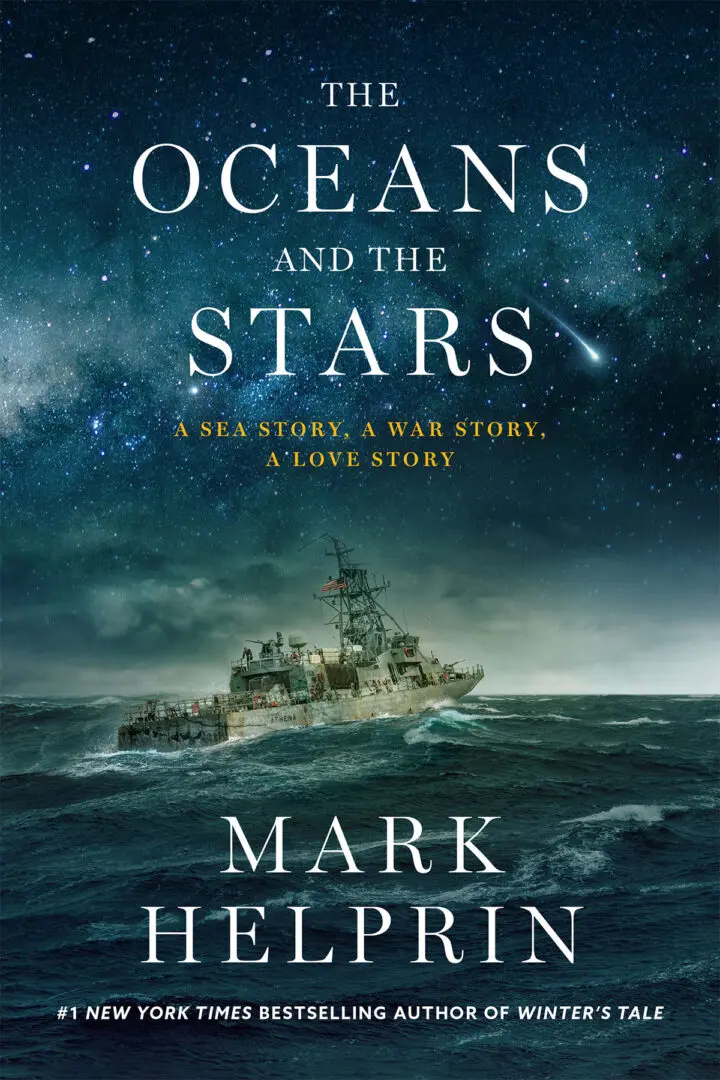Excerpt
Excerpt

PROLOGUE
Hampton Roads, Winter
Snow falling upon water makes a sound so close to silence that no heart exists it cannot calm. It fell across the Chesapeake and in the harbors and inlets and far out to sea, surrendering to the waters with the slightest exhalation and a muffled hiss. Though few are there to see it, in winter this happens often.
In the construction and maintenance of warships in Virginia’s Tidewater, now veiled in steady snow, engines throbbed, cranes swivelled, and barges plodded over black waters. The spacious anchorage of Hampton Roads is ringed by naval stations, air bases, and shipyards making up the largest concentration of naval might in existence. Interwoven with civilian cities and commercial waterways, this sinew of steel is a world of its own. Even so, its powerful present cannot overwhelm images that upwell from the past: the sails of the French fleet in surprising bloom off Yorktown; the Monitor battling the Merrimack; and within living memory the Battle of the Atlantic, when ships burned offshore and corpses washed up on the sand.
From these docks and quays millions left for the World Wars, half a century of Cold War, Korea, Vietnam, and the Middle East. And for the scores of thousands who did not return, the flat coast of Virginia was the last they would ever see of their country. In summer and from war to war, as their ships passed by, young sailors would fall in love with girls on the beaches even though they could hardly see them.
None of this can be erased. Absorbed in their tasks, people do forget, but ofttimes spectral images suddenly appear. Across the water in the vast shipyards, cascades of sparks rooster-tail from the darkness of a cavernous shed or beside a massive hull. As if descended from the flash of guns, they seem to escape the underworld so as to insist upon the eternal presence of battle. And a warship headed out, as in uncountable times before, can arrest a watcher onshore as the ship speeds toward harm’s way across the world and far from home.
Sailors find it hard to explain how they were changed by the sea; how even on a carrier, in the company of five thousand souls, they came to know the ocean’s loneliness, and how war at sea unaccountably bound them to all others in every age who have sailed in fighting ships. The Navy’s stories are different and differently understood. Nonetheless, the stories unfold, and must be told.
*
At 0700 on 21 January, crowned by pier after pier of steel-gray ships of the line, Naval Station Norfolk was covered in deep drifts after a great and unusual snowstorm. In an emptied helicopter hangar at the edge of the long base runway, a court-martial was about to be called to order. Specially installed to provide heat as much as illumination, klieg lights shone hot from temporary rigging. At the outset of the proceedings Navy brass had assumed that civilians and press would crowd the hangar. They never did, at least not as imagined, and on the day the findings would come down no one was present other than the principals. Outside, sailors passed by, oblivious of the trial within. The public had long lost interest, and the press, which had been reassigned to cover a sparsely attended presidential inauguration amidst driving snow the day before, were trapped in Washington by hangovers and closed roads.
At its extremities, the cavernous building was dark, but its center was as colorful as a field of wildflowers. Sixteen in all, the national ensign and the flags of the Navy and various fleets and commands stood behind the dais, blindingly lit. Everyone was in dress uniform.
Because the charges included two capital counts, they required in addition to a military judge (in this case an admiral) twelve officers ranking higher than the defendant. Accordingly—as the accused was a captain—thirteen admirals walked in and took their places. The president of the court was Admiral Porter, of four stars, soon to retire, the dean of the Navy, and loved by all ranks. An unlit pipe was cupped in his left hand.
The admirals were expressionless and grave. The cut, insignia, ribbons, and devices of their uniforms added to their genuine authority. Most had a lot of gray in their hair. Some had nothing but gray.
At the prosecution table, trial counsel drummed his fingers as he and his numerous assistants scanned the panel, but at the defense table sat only defense counsel and defendant. Despite recent wounds and surgeries, the defendant’s military posture was straight and strong. Whatever the verdict, his expression would remain the same and he would neither move a muscle nor blink.
As there was much that he loved, he had much to lose. But the pros- pect of death made love full and intense, and love that was full and intense made it possible to face death with equanimity. Although it takes some doing to know this, nothing could be more true.
Now, in a blaze of light and color, after the unprecedented snow that had streamed down upon the halyards, the masts, the stays, and the whitened decks of a mile-long line of ships, Stephen Rensselaer, Captain, United States Navy, awaited the capital verdict with less apparent anxiety than even those who would hand it down.